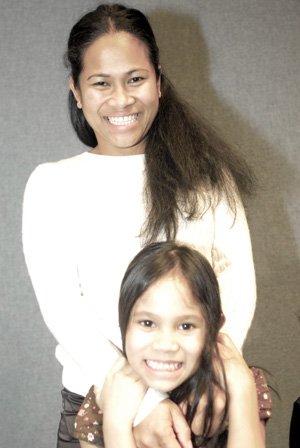Chhaya Chhoum
“We were dumped in the Bronx when the Bronx was burning,” says Chhaya Chhoum, after a refugee resettlement program abandoned her extended family along with thousands of other Cambodians and Vietnamese in urban poverty in the 1980s.
When Chhoum was 16, she became a tutor in a pilot program run by CAAAV, one of the first organizations in America to mobilize Asian immigrant communities against the institutionalized violence of urban poverty, worker exploitation, police brutality, INS detention and deportation. Her summer internships soon turned into a full-time job as she became staff director of CAAAV’s new Youth Leadership Project (YLP).
Taking on slumlords, overcrowded classrooms and cutbacks in translation services at public assistance centers and local health clinics, Chhoum harnesses the energy of the young in a community that has lost much of its adult generation. Each year, another group of teens joins the YLP Summer Institute for an intensive eight weeks of training as organizers.
As welfare reform was put into effect, these young organizers surveyed its impact on their community, documenting the denial of aid and food stamps to families without due process and the assignment of mothers to “workfare” in unsafe and unsupervised environments. Through demonstrations and legal appeals, YLP’s campaign enabled women to choose education and training instead of workfare, secured bilingual caseworkers for those in need and documented its victory in a widely distributed film called Eating Welfare.
Recognizing families’ need for supplemental income, YLP built a food and crafts cooperative and later a catering business that drew on the adult women’s everyday skills. Addressing the lack of progress of Asian immigrant children in Community School District 10, YLP successfully negotiated for a full-time parent translator as well as funding for an after-school tutoring program, which offers lessons in Southeast Asian history and culture and encourages parents to participate in public school governance.
Today, 29-year-old Chhaya Chhoum presides over a hum of activity from her small office in what was an abandoned three-story brick convent, purchased and refurbished by YLP, its brightly painted walls covered with maps of Southeast Asia, photographs of family members in refugee camps and wall texts charting their journey to the Bronx.
YLP is expanding culture classes for the next generation, ensuring that those who still speak the language and remember the traditional dances can pass on Cambodian culture. Chhoum and her young organizers are working to design an interactive oral history which she hopes to locate at the Bronx Museum or at Fordham University’s new $14-million library. As high-schoolers prepare to go to college, YLP helps them navigate financial aid forms and counsels refugee parents who are often fearful of sending their children far from home. YLP is also working to protect young people convicted of felonies who, after serving their time, can be deported to a country they never knew.
Twenty years after migration, untreated post-traumatic stress still contributes to domestic violence and high rates of incarceration, teen pregnancy and illness. “Our community has survived war and dislocation and poverty but it is still sick. ” Chhoum says. “You feel your life isn’t valued and you begin to internalize that. Many still cannot talk about what they went through. We need to create a center here for survivors of torture. And we need to keep organizing and exposing inequality and fighting for respect until we change the balance of power.”
 Photo by Joshua Cogan
Photo by Joshua Cogan